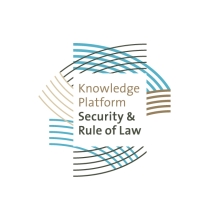Feminist Foreign Policy: A feminist way forward for SRoL development cooperation
Despite their inherent domestic nature, social contracts are, in one way or another, subject to the pressure of external forces, of which interventions aimed at strengthening the said social contracts are a special category. It is undeniable that development cooperation has become a key site of SRL interventions working towards reducing inequalities.
In recent years there has been however, a growing concern over the historically embedded power dynamics that underlie international development cooperation. KPAC22 has also highlighted that many programming interventions are rooted in and framed using Western values, lenses, and knowledge systems which hampers ownership and legitimacy of power in non-Western contexts and undervalue local expertise and agency, and ignores history of colonization and other oppressive interactions among states. The latter resulting in frail and aid dependent social contracts.
Within this context, there is need to explore what an Feminist Foreign Policy means in practice for SRoL programming, what effects it might have on interventions aiming to strengthen social contracts and what backlash supporting from the exterior a feminist perspective in a given country might cause vis a vis of both national governments and communities.
On June 26th 2023, The Knowledge Platform Security & Rule of Law hosted a conversation on implications of FFP on development cooperation, with a specific emphasis on SRoL programming. The event discussed what distinguishes Feminist Foreign Policy from previous (similar) policies and what this policy might look like in practice for SRoL programming. It highlighted the voices of practitioners in SRoL programming and policy recommendations on specific adjustments needed to fully operationalize the policy.
Key questions
How do we ensure that FFP enhances women’s rights while also tackling other power relations more holistically, using a rights-based and intersectional understanding(and approach) of feminism?
How can an FPP help address pre-existing power dynamics undermining meaningful SRoL programming and policy (and the development cooperation ecosystem as a whole)?
How can we operationalize an FFP in the SRoL sector? What ingredients are necessary and what challenges should we be cognizant of?
How can we more meaningfully involve civil society organizations (including community-based organizations, women’s groups, youth…) in developing a feminist approach to SRoL?
Read the event concept note here.

